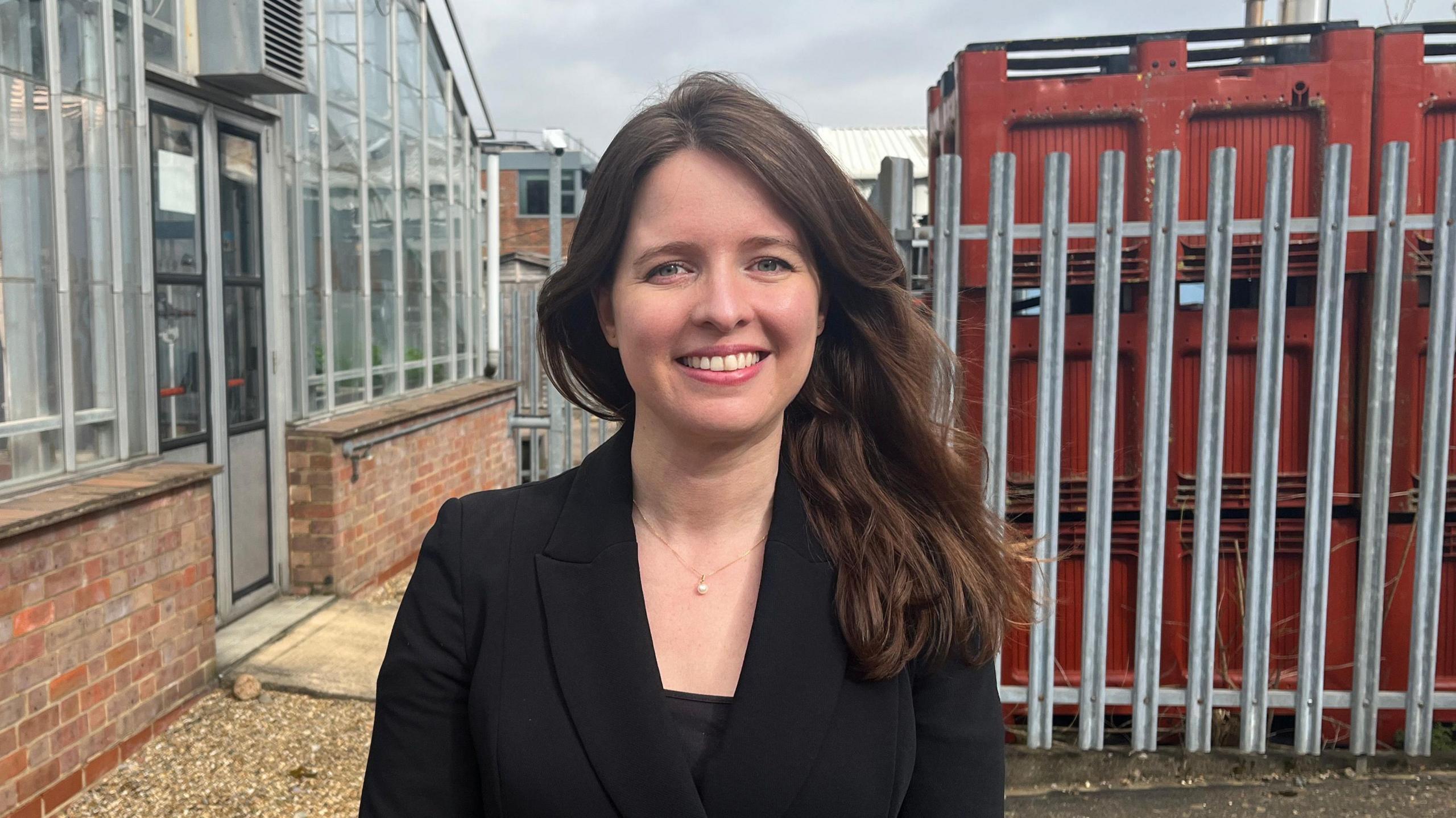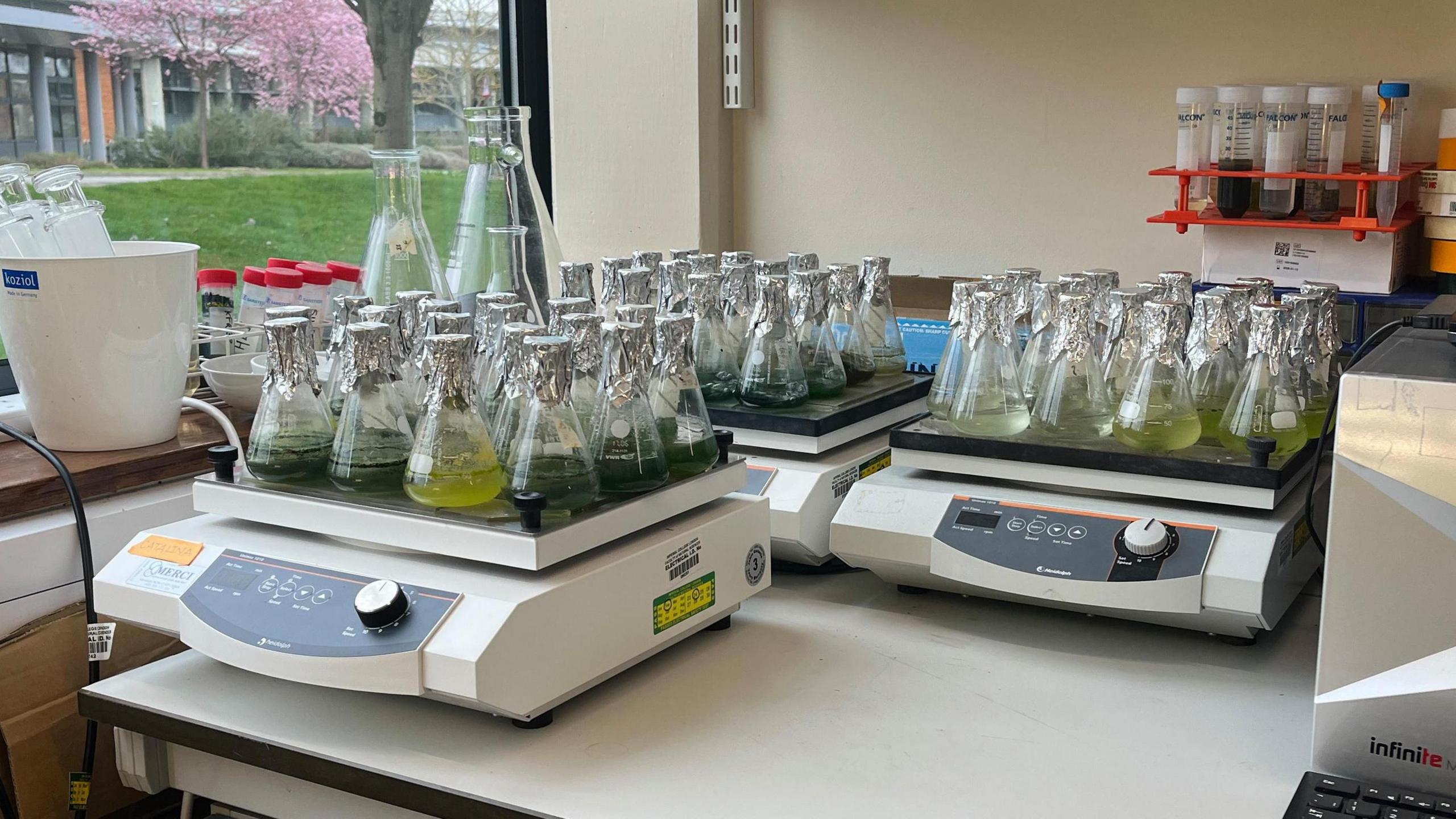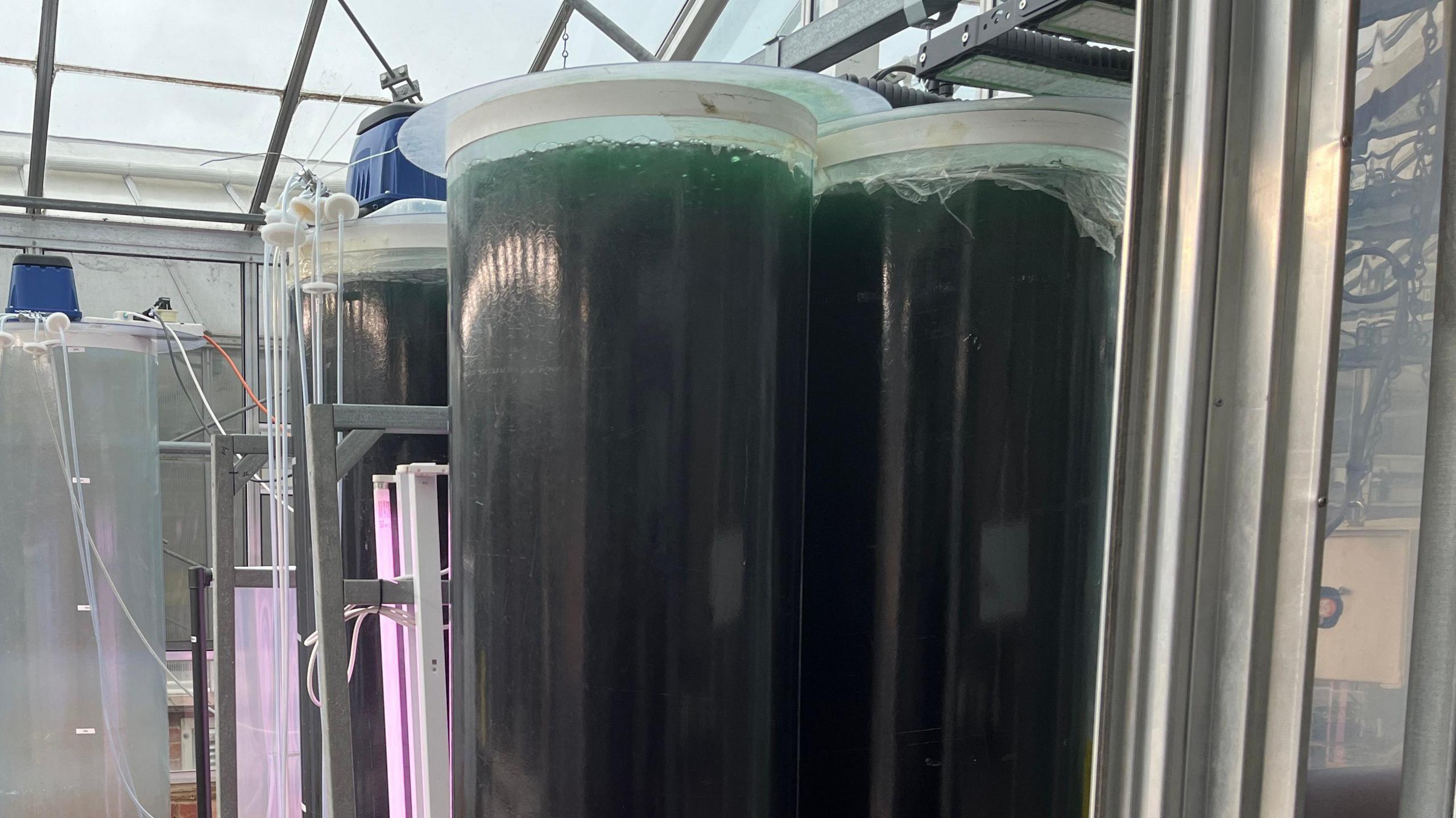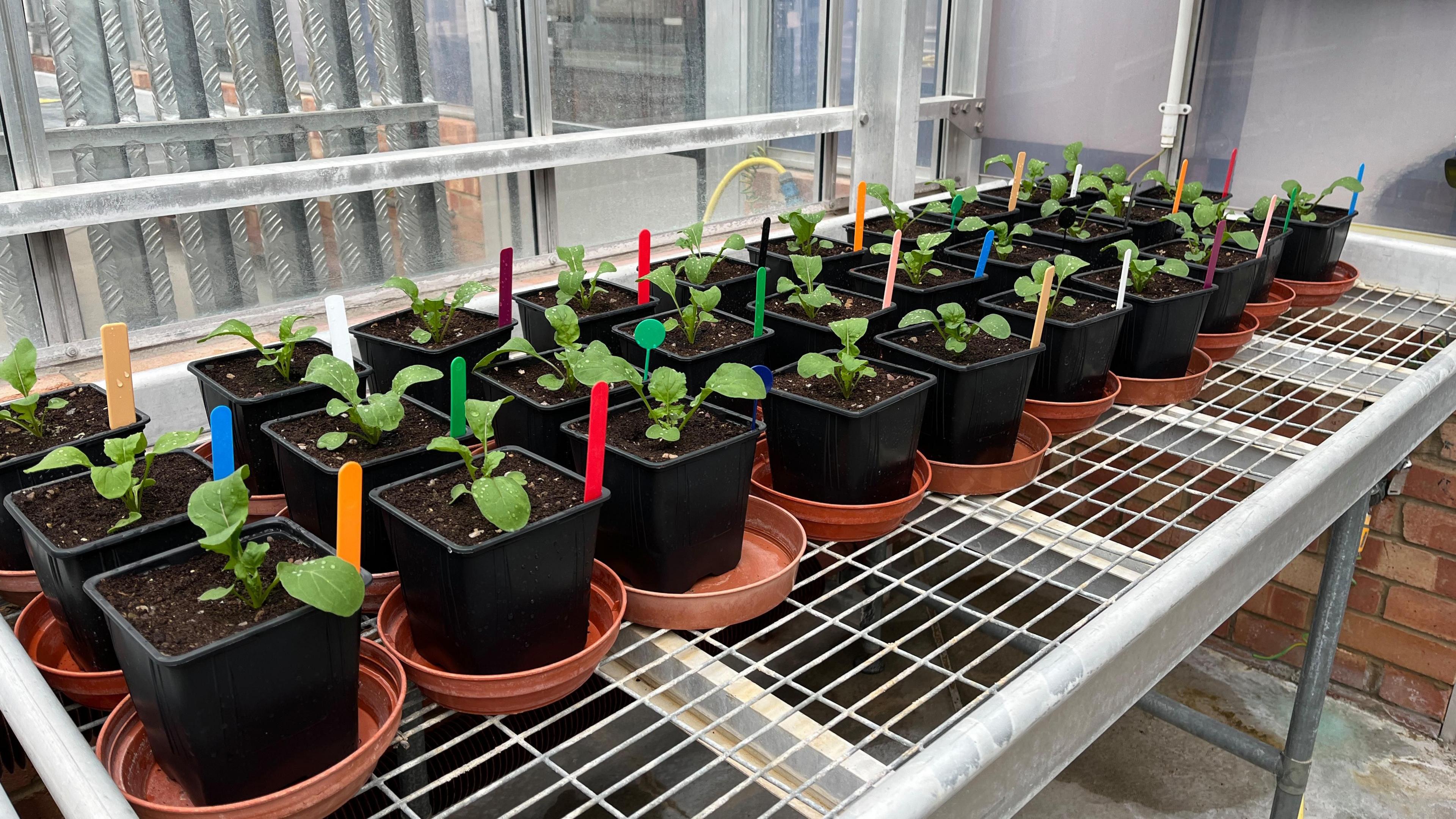Firm trials sustainable algae fertiliser for crops

Dr Marine Valton, CEO and Co-founder of Nourisol, said the product is a slow release fertiliser which captures both carbon and nitrogen from the atmosphere
- Published
A company which creates sustainable fertilisers from algae said trials suggest it has led to a 21% increase in yield compared to a chemical fertiliser.
NouriSol, Rothamsted Research campus, Harpenden develops fertilisers that harness the power of microalgae already present in farmers' soils.
As the algae grows, it captures carbon and nitrogen from the atmosphere, using energy from sunlight, and once applied to the soil the process continues.
It said the production and use of existing fertilisers has the opposite effect, generating about 3% of greenhouse gas emissions.

The algae in the laboratory grows thanks to sunlight, atmospheric CO2 and nitrogen
Furthermore, it said, once applied, up to 50% of existing fertilisers do not reach the plant and instead leach out causing damage to the environment.
CEO Dr Marine Valton said: "We go to the farmers field and find the algae - in one gram of soil you have 5 million algae - microalgae - we select the best ones and scale up production to then apply it to the crops."

The algae fertiliser in large tanks as production is scaled up
"To test our product we do greenhouse and field trials in collaboration with farmers.
"That is where we have seen our product has led to a 21% increase in yield compared to a chemical fertiliser," Dr Valton said.
"Farmers are under a lot of pressure with the changing regulations to farm sustainably and produce more and we are allowing them to do that as well as improve their profits."

Dr Valton said "we try different versions of our product to keep optimising it for the farmers" whilst comparing it to the chemical fertilisers
Nourisol has secured £500k from government agency Innovate UK as well as the Royal Academy of Engineering and is currently fundraising £1.3m to scale up production and commercialise its first product.
"We really want to get our product out there, so we are looking to start working with more British farmers and farmers from all over the world," she added.
Nourisol features in What They Really Mean For You: Ready Meals - tonight at 9pm on BBC One, or right now on iPlayer.
Get in touch
Do you have a story suggestion for Beds, Herts & Bucks?
Follow Beds, Herts and Bucks news on BBC Sounds, Facebook, external, Instagram, external and X, external.